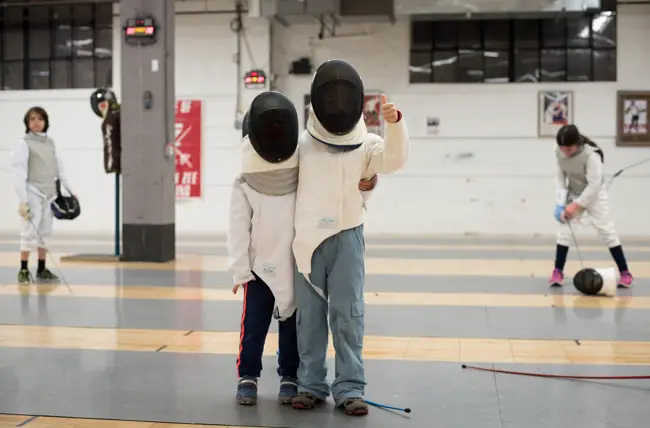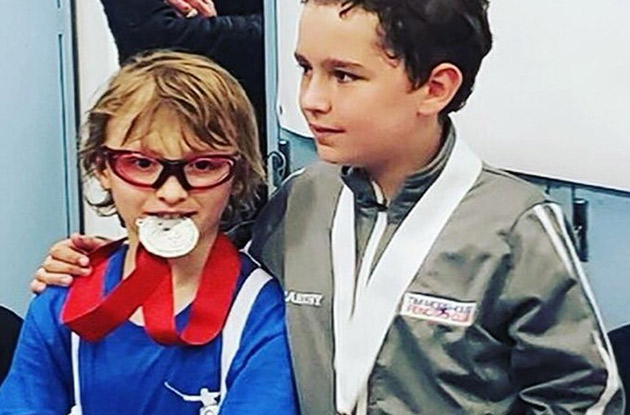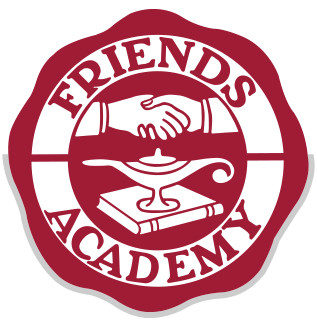Get the Best Kid-Friendly Activities
Sent to You Weekly!

“Unlike other martial arts, fencing is carried out at a distance, allowing children to participate without the discomfort of having their personal space invaded,” Dr. Belilovsky says. “Masks are opaque enough that they need not worry about being embarrassed by facial expressions or being intimidated by the ‘war faces’ of others.”
And, unlike some sports that require sheer athleticism, such as basketball, or that benefit athletes with a certain build, like football, successful fencers have to rely on both their physical and tactical abilities. Children need and will ultimately develop better body awareness through fencing, too.
“They have to stand a certain way and use their arms and hands a certain way,” Goto says. “They also have to be able to tell how far they are away from someone else.”
In addition to the physical benefits, children learn critical thinking, comprehension, and concentration skills. Like singles tennis, there are no coaches or teammates for athletes to rely on. Instead, children must pay attention to their coach’s advice beforehand and then figure out different ways to beat their opponents on their own. They also must understand the different attacks and defenses they have at hand and strategize.
Despite the presence of weapons, injuries are rare, Dr. Belilovsky says. The most common injuries in fencing include bruises and strains or muscle injuries that come from not warming up or cooling down properly.
The benefits are well worth the risks, Toni-Lynn Catalanotto says. Once children have dedicated themselves to the sport, they will learn responsibility and how to care for their uniforms and equipment.
In addition to shoes and gloves, there are masks, chest protectors, jackets, and weapons. And, although many would assume that this would make the sport much more expensive than others, children can usually get basic gear for around $200. Additional equipment can cost up to $700 total.
“Matthew takes great pride in his equipment, all the way down to his shoes,” says Toni-Lynn, whose son carries his equipment to and from the car without being asked. “Matthew has turned into a young man with lots of pride, not only in his sport of fencing, but in other aspects of life.”
Want to know learn about fencing from a champion? Read our interview with Tim Morehouse, three-time Olympian and silver-medalist originally from Riverdale in the Bronx.









